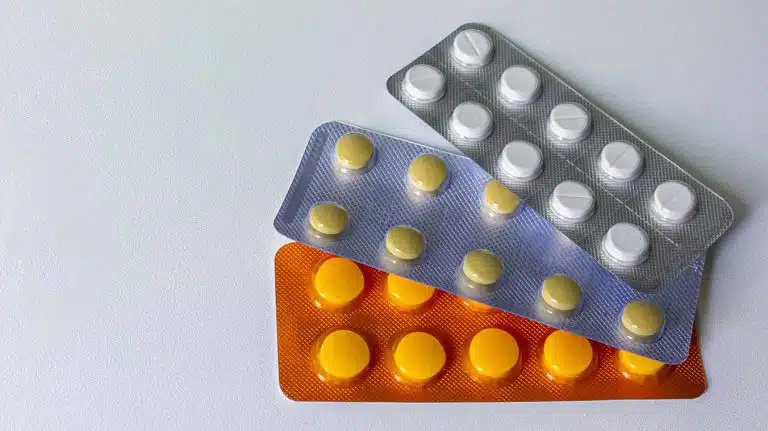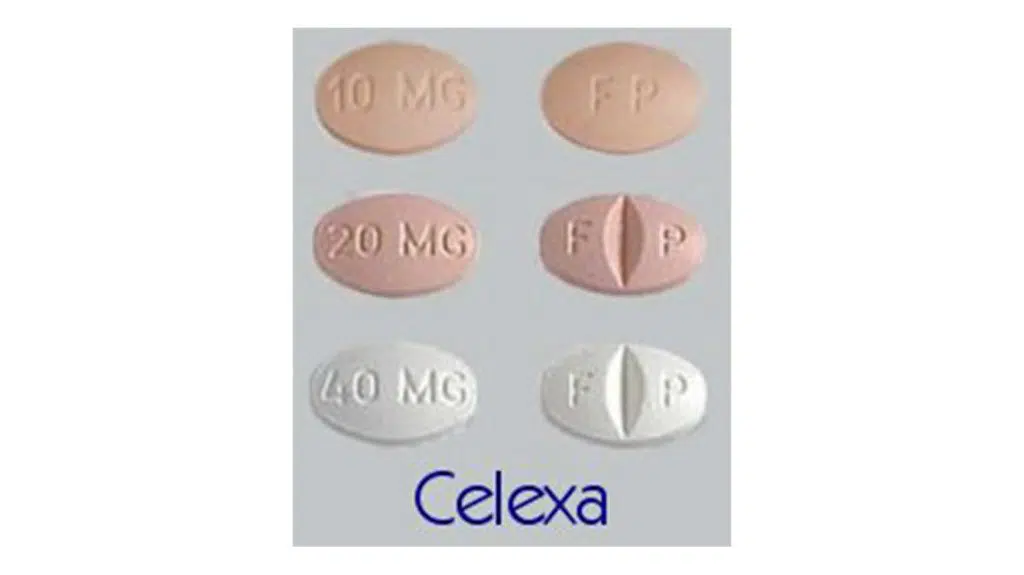Celexa (Citalopram) Dosage Guide | 10-40mg Recommendations & Warnings

Recommended doses for Celexa range from 10 to 40 milligrams per day.
Celexa is a brand-name antidepressant medication that treats major depressive disorder, anxiety disorders, bipolar disorder, and similar mood disorders. Its generic name is citalopram hydrobromide.
Celexa is a selective serotonin reuptake inhibitor or SSRI. SSRIs are a common form of antidepressant medication, due to their perceived lower risk compared to other types of antidepressants.
Taking Celexa as directed can minimize your risk of adverse effects. Talk to your doctor if you experience sudden side effects when taking Celexa.
Recommendations For Celexa Dosings
Celexa is available in 10 mg, 20 mg, and 40 mg tablets.

Higher doses can lead to stronger relief from depression, but also an increased risk of serious side effects. Celexa should be stored at room temperature and is likely taken once a day regardless of dosing.
Taking Celexa builds up to a steady amount of the drug in your bloodstream. After several weeks, a consistent Celexa concentration in the blood can be reached. After this point, you are more likely to feel the effects of citalopram.
A missed dose of Celexa can be made up if you keep taking Celexa as directed. Doubling up on doses can increase the risk of common side effects like dry mouth, drowsiness, insomnia, nausea, and nausea.
Warnings That Can Affect Celexa Dosage
In recommended doses, Celexa can reduce symptoms of depression. However, certain medical conditions and prescription drugs can change how Celexa works on the body.
Depending on your medical history, your doctor may lower your dose of Celexa or recommend you do not take it at all.
Risk Of Heart Arrhythmia
High doses of Celexa can change how your heart works. These changes in heart rhythm are known as heart arrhythmia. Taking more than 40 mg of Celexa per day is likely not recommended as the risk of heart arrhythmia can go up significantly at these doses.
Heart arrhythmia comes in many forms. One form of heart arrhythmia linked to Celexa is QT prolongation. QT prolongation happens when the electrical activity in your heart changes. It can cause Torsade de Pointes, where the lower half of the heartbeats at a different rate than the upper half.
Doctors can use an electrocardiogram (ECG) to monitor patients for symptoms of QT prolongation. If readings are consistently high, discontinuation of Celexa is often recommended.
Patients With Preexisting Conditions
Celexa can cause longer QT intervals, but it can also worsen a genetic version of the disease known as congenital long QT syndrome. Celexa is likely not recommended in patients with this condition.
Celexa can also lead to worsening symptoms in patients with hepatic impairment, hypokalemia (low potassium) or low magnesium levels, and a history of heart failure. Patients with these conditions may also be advised to avoid Celexa.
Patients taking Celexa may be told to contact their healthcare provider right away if they experience side effects related to the heart, such as abnormal heart rate, palpitations, or dizziness.
Interactions With Other Drugs
Celexa is metabolized by specific enzymes, known as CYP3A4 and CYP2C19 enzymes. CYP2C19 inhibitors are drugs that also affect the latter enzyme. Cimetidine is a common form of CYP2C19 inhibitor, which is prescribed to relieve heartburn and acid reflux disease.
QT prolongation is a known drug interaction between Celexa and cimetidine. The maximum dose in patients who are taking Celexa and cimetidine is usually 20 mg, to reduce the health risk.
Monoamine oxidase inhibitors (MAOIs), tricyclic antidepressants, lithium, triptans, and St. John’s Wort can increase the risk of serotonin syndrome when taken with Celexa. Serotonin syndrome is a serious adverse effect of antidepressants that can cause physical and mental harm.
Mental Health & Substance Abuse Treatment Options
High doses of Celexa can cause heart problems, serotonin syndrome, angle-closure glaucoma, sudden changes in blood pressure, suicidal thoughts, and other serious side effects. While Celexa can help with your mental health, it can also be abused like any other prescription drug.
Stopping Celexa abruptly can also lead to withdrawal symptoms. This can make it difficult for some patients to stop taking Celexa, as they may feel stuck between worsening mental health and possible dependence.
Drug abuse is often a sign of a larger mental health problem that could benefit from treatment. To find a substance abuse program that works for you, please contact our helpline today.
Written by Ark Behavioral Health Editorial Team
©2024 Ark National Holdings, LLC. | All Rights Reserved.
This page does not provide medical advice.
Food and Drug Administration - Citalopram Celexa
Food and Drug Administration - Clarification of dosing and warning recommendations for Celexa

Questions About Treatment?
Ark Behavioral Health offers 100% confidential substance abuse assessment and treatment placement tailored to your individual needs. Achieve long-term recovery.
100% confidential. We respect your privacy.
Prefer Texting?
Our friendly support team is here to chat 24/7. Opt out any time.







 Learn More
Learn More








